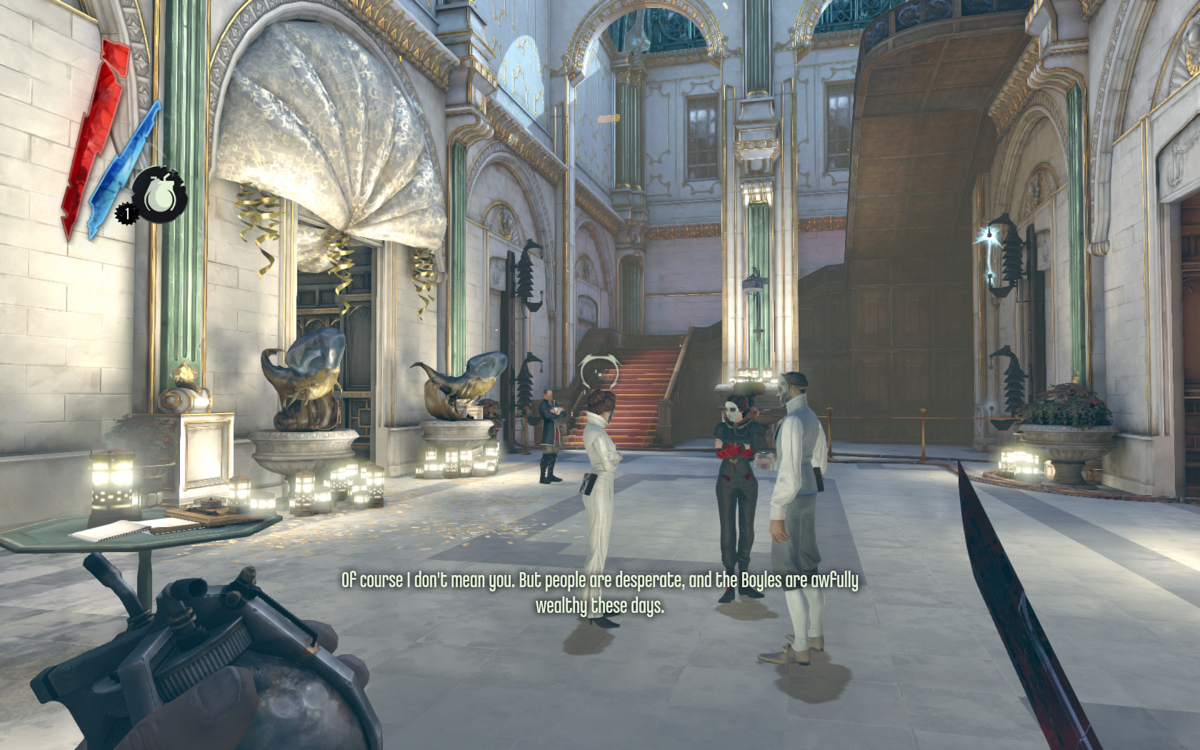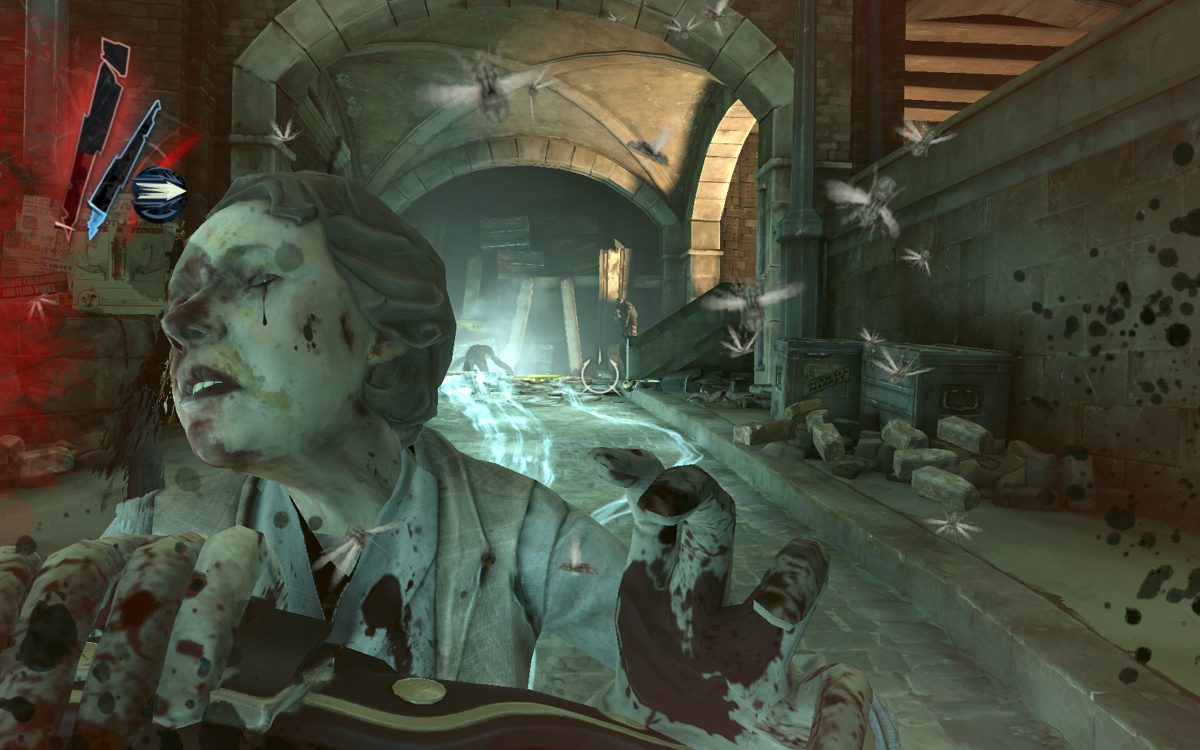Dishonored, released by Arkane Studios, probably isn't most people's idea of a traditional sword-and-sorcery work. The player controls a royal bodyguard, Corvo, to the empress of a secondary world modeled on Victorian London. It's technically not a steampunk world, but rather a world in which fantasy technology is entirely powered by whale oil. The empress is assassinated, her daughter is kidnapped, and Corvo is framed for the crime and sent to prison. Months later, a group of conspirators loyal to the empress helps spring Corvo from the joint and immediately afterward Corvo is approached by a mysterious cosmic entity called the Outsider, who provides Corvo with supernatural powers that Corvo may use to gain his revenge. The Outsider's relationship with Corvo and other mortals is broadly reminiscent of how Elric's magic is supported by Arioch and other supernatural beings.
Unlike the other games covered so far, in which story served more as flavor and as something to simply put various aspects of the games in context, Dishonored is a big-budget modern game that attempts to tell a full story of Corvo's fall and rise and insists that players watch lengthy cutscenes, interact with fully voiced supporting characters, read books full of background information on the world and its people, and listen to audio logs. It's a far cry from the hard-hitting, get-right-to-it manner of Rastan or Golden Axe. But Dishonored in many ways takes after the Thief series and Thief is absolutely thick with Fritz Leiber-esque atmosphere.
Dishonored is designed to offer as much freedom as possible to the player in achieving goals. The game can be completed without directly harming a single person by sneaking about like a ghost, or Corvo can charge in and capably hack his way through multiple opponents with his sword and pistol, setting off alarms and causing complete chaos. Corvo's powers potentially include teleportation, possession, stopping time, or calling forth hordes of plague rats to overwhelm foes. Corvo is also armed with several types of gadgets such as traps, grenades, and hacking devices. It doesn't take long for Corvo to seem quite overpowered compared to all the enemies around him.
The game was initially intended to simply be an assassination game, as Corvo would eliminate important characters that were part of the conspiracy against him and the empress, but co-director Harvey Smith (Deus Ex, Thief: Deadly Shadows) proposed that missions have alternate non-violent solutions, although in some cases it could be debatable whether the non-fatal method is more humane; e.g., in one mission your solution leads to a female target being kidnapped by an admirer who will forever have the woman at his mercy without anyone realizing her circumstances. The game judges the player through a simple morality system based on how much chaos the player causes. More death and explosions lead to more negative consequences and the bad ending, while keeping body counts low leads to a happier outcome.
The fantasy elements are relatively restrained in that enemies are all essentially human. Even the "zombies" present in the game are actually people reduced to that state because of an unexplained plague afflicting the city. There are no hints of elves, orcs, or dwarves anywhere.
Visually, the game uses a painterly effect that is effective in providing a sense of realism, but stylized just enough that the game's seams don't show. The artists, such as Viktor Antonov, cited as inspiration works by Gustave Doré and illustrations for Rafael Sabatini's novels such as Captain Blood, among others.
As with so many big budget games, the production values are very impressive, although I can't help thinking that the big name voice cast the studio hired was somewhat wasted. Aside from Michael Madsen as the villain/DLC protagonist Daud, I failed to recognize most of the voices and was surprised to see names like Brad Dourif and Carrie Fisher listed in the cast. It's enjoyable enough to play but the story is predictable and I never felt invested in the fates of any of the characters. The game is almost too effective at evoking a sense of squalor - the overwhelming brownness of it and the trash- and carcass-strewn streets and houses become wearisome after a while, reminding me of how many recent fantasy works seem weirdly preoccupied with excrement and garbage. But at least the game is of a modest length and doesn't overstay its welcome, either.







No comments:
Post a Comment